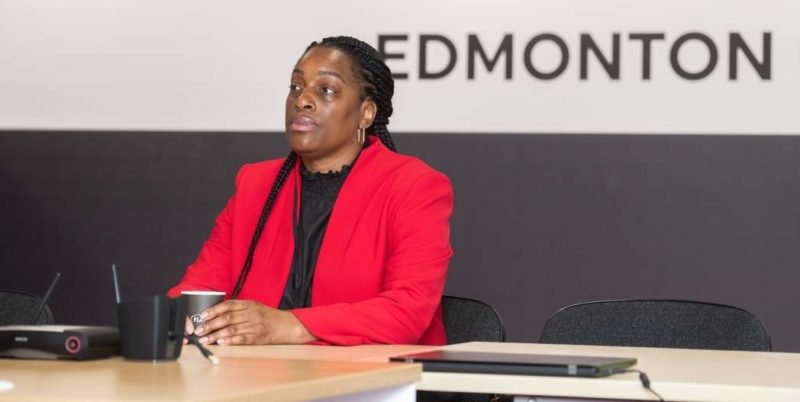|
| Observing Turkey’s Elections
Last weekend I visited Diyarbakir, a predominantly Kurdish region in the Southeast of Turkey, as part of my role on the Council of Europe Parliamentary Assembly to observe the country’s presidential elections. It was a crucial moment for Turkish democracy, with hopes that voters would reject President Recep Tayyip Erdoğan’s authoritarian brand of nationalism.
However, the outcome of the elections turned out to be disheartening. President Erdoğan came close to winning outright, securing over 49% of the votes, while his main rival, Kemal Kılıçdaroğlu, received 45%. The coalition led by President Erdoğan’s Justice and Development Party (AKP) is also poised to win a surprise majority in the Grand National Assembly, posing a significant obstacle to the opposition’s efforts to restore parliamentary democracy in Turkey.
President Erdoğan has suppressed the Kurdish minority, which was particularly evident during my visit to Diyarbakir. The region has experienced political repression and a curtailment of civil rights in recent years. These developments, along with the oppression faced by dissidents, journalists, women’s rights campaigners, and LGBTQ+ individuals, are alarming signs of an autocratic regime.
The opposition now faces the daunting task of shifting the tide in the remaining two weeks of the presidential race, despite a media environment heavily biased in favour of President Erdoğan. These recent developments in Turkey remind us of the challenges faced by democracies worldwide. It is essential for all of us who believe in freedom, human rights, and the rule of law to support those who strive for democratic reforms, both at home and abroad. |
| Crisis in Sudan
On Tuesday, at the International Development Select Committee, we held an important evidence session on the ongoing humanitarian crisis in Sudan where we had the opportunity to hear from experts like Eddie Rowe, the Sudan Country Director of the UN World Food Programme.
One of the key points raised during the session was the significant reduction in UK aid to Sudan, with a budget of £5.43 million for ODA in 2023/24, representing a drastic 97.5% decrease compared to previous years. Despite this decrease, the UK government still supports nine active projects in Sudan, focusing on peacebuilding, humanitarian response, water, FGM, de-mining, and economic reform. However, a large proportion of aid is allocated to disaster relief, highlighting the urgent need for immediate assistance in the country.
The witnesses also highlighted the dire humanitarian situation in Sudan. Clashes between the Sudanese Armed Forces (SAF) and the Rapid Support Forces (RSF) have resulted in the displacement of approximately 334,000 people internally, with an additional 120,000 people seeking refuge in neighbouring countries. The prices of essential goods, such as food and fuel, have skyrocketed, exacerbating the already challenging circumstances faced by the population. Moreover, the closure of health facilities and looting of humanitarian assets have further compromised access to healthcare and humanitarian aid.
The evidence session shed light on missed opportunities and warning signs preceding the conflict. Efforts to support Sudan’s political transition towards civilian governance were in progress, but the eruption of conflict took many by surprise. It’s clear that urgent action is needed to address the humanitarian crisis in Sudan. The international community must now rally together and provide the necessary aid and resources to alleviate the suffering of the Sudanese people and work towards a sustainable and peaceful future. |
|
| The Hotel Crisis
The current hotel crisis in Edmonton reveals a deeply concerning situation for homeless families. The number of families being housed in hotels and B&Bs beyond the legal time limit has reached a 20-year high across the country and this is a crisis largely being ignored by the Government.
In London, the problem is particularly acute, with a staggering increase of 180% in families living in hotels and B&Bs for more than six weeks from 2021 to 2022. These families face dire circumstances, lacking essential facilities such as cooking and clothes washing amenities, and being forced to pay for additional services like laundry and takeaway food.
We need to address the root causes and provide sustainable housing options. To tackle this crisis, we must look to the past for inspiration. In the immediate post-war period, the Attlee Government faced austerity yet managed to build a record number of council homes.
Dependence on the private sector for housing isn’t working. Property speculators and landlords prioritise profits over the provision of safe and affordable housing. It’s time to shift our focus and end this reliance. Local Councils, like Enfield, must be empowered with the necessary resources, funding, and mandate to embark on a construction spree. By providing local councils with the means to build, we can alleviate the suffering of homeless families and pave the way for a brighter future. It’s time to prioritise people over profit and take decisive steps towards ending homelessness for good. |
|
| Thank you again for taking the time to read my latest update, if you have any issues that you would like to raise directly with me then please do email edmontonconstituency@parliament.uk .
I’m always happy to help whenever possible.
Kind regards,
Kate Osamor
Member of Parliament for Edmonton |
|
|

